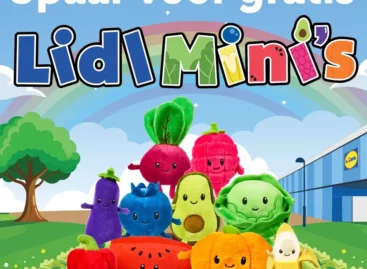Lidl prepares for Biedronka’s market entry in Slovakia
Lidl in Slovakia underlines its claim to price leadership. The discounter is permanently cutting prices on basic groceries, thus anticipating a VAT reduction that will become mandatory at the beginning of next year. The imminent entry of Polish market leader Biedronka is expected to put pressure on market price levels.

Lidl’s current marketing campaign highlights the preemptive VAT reduction on basic foods
Lidl in Slovakia is permanently reducing the prices of selected food products. As part of its “The price revolution starts now” marketing campaign, the country’s only discount retailer is reducing VAT from 10% to 5% on fresh fruit and vegetables, fresh meat, juices, bread and rolls without artificial additives (“E”), and honey.
Lidl is anticipating what will be mandatory for all retailers in the country from 2025. The Slovak Republic will make significant adjustments to its VAT rates from 2025. The standard VAT rate will increase from 20% to 23%. For basic foodstuffs however, the current mandatory rate of 10% will be reduced to 5%, and for other foodstuffs the rate will be reduced from 20% to 19%. Already in the spring of this year, the discounter announced that it would continue the VAT exemption on food, which ended in Slovakia at the beginning of April.
Lidl reinforces its position as price leader in Slovakia’s food market. This strategy anticipates the arrival of Polish market giant Biedronka, poised to open its first stores in Slovakia. Biedronka’s market entry campaign focuses on fresh products, domestically produced, at low prices. The slogans on the discounter’s webpage, external billboards and social media ads read ‘Fresh Slovak fruit and vegetables at really low prices’ and ‘Quality Slovak meat at really low prices’. Biedronka’s launch in Slovakia is predicted to intensify competition and drive down grocery prices.
According to the latest Finstat data, Lidl is the market leader in the grocery segment with a net revenue of 2.09 billion euros in 2023, an increase of 10.4% over the previous year, and a profit margin of 7.7%. down from 8.4% in the comparable period. The German discounter advanced to the position of market leader in 2021, overtaking the cooperative Coop Jednota Slovensko. Coop operates a network of nearly 2,300 stores, mostly smaller supermarkets and neighborhood stores with a focus on rural areas. Coop reported total net retail sales of nearly 1.96 billion euros, an increase of 10.5% over the previous year. In third place in the national ranking was supermarket operator Kaufland, sister company of Lidl, with net sales of 1.75 billion euros (+13.5%) and a net profit margin of 5.3% (5.6%), edging past British Tesco, who achieved net sales of 1.71 billion euros (+4.6%) and a net profit margin of 4.8% (previously 3.5%).
Related news
Mere in Lithuania: Rapid growth and a hard discount niche left open by Lidl
🎧 Hallgasd a cikket: Lejátszás Szünet Folytatás Leállítás Nyelv: Auto…
Read more >Related news
Lidl guarantees fairer prices for cocoa farmers
🎧 Hallgasd a cikket: Lejátszás Szünet Folytatás Leállítás Nyelv: Auto…
Read more >







